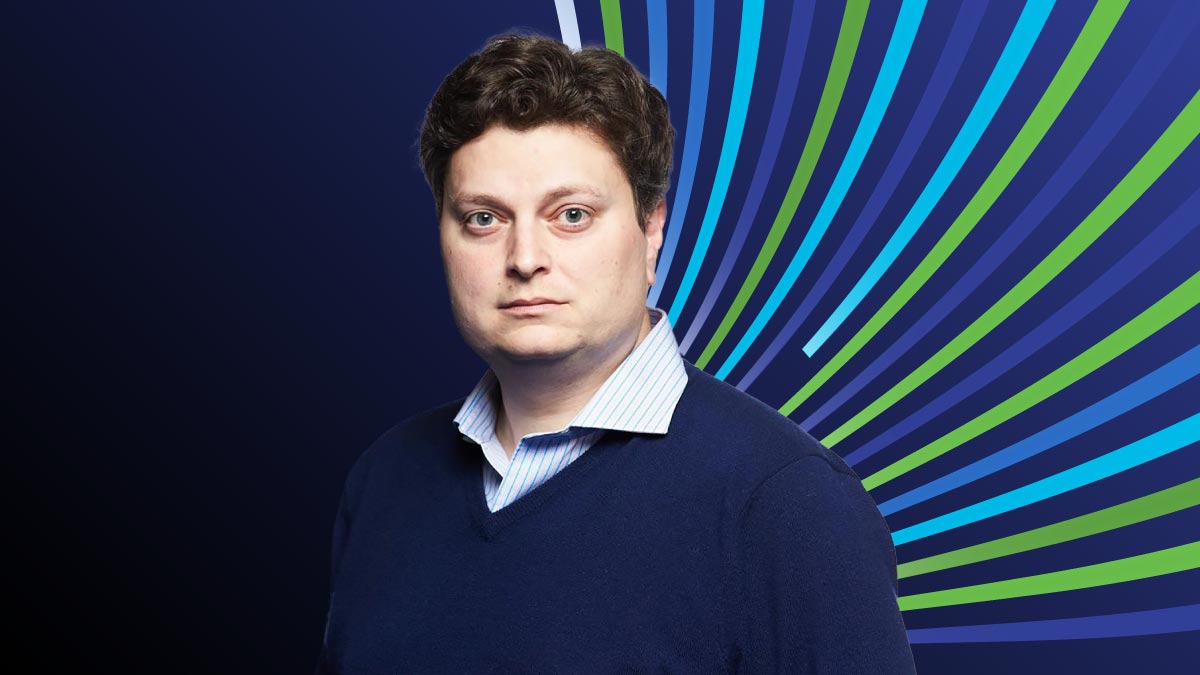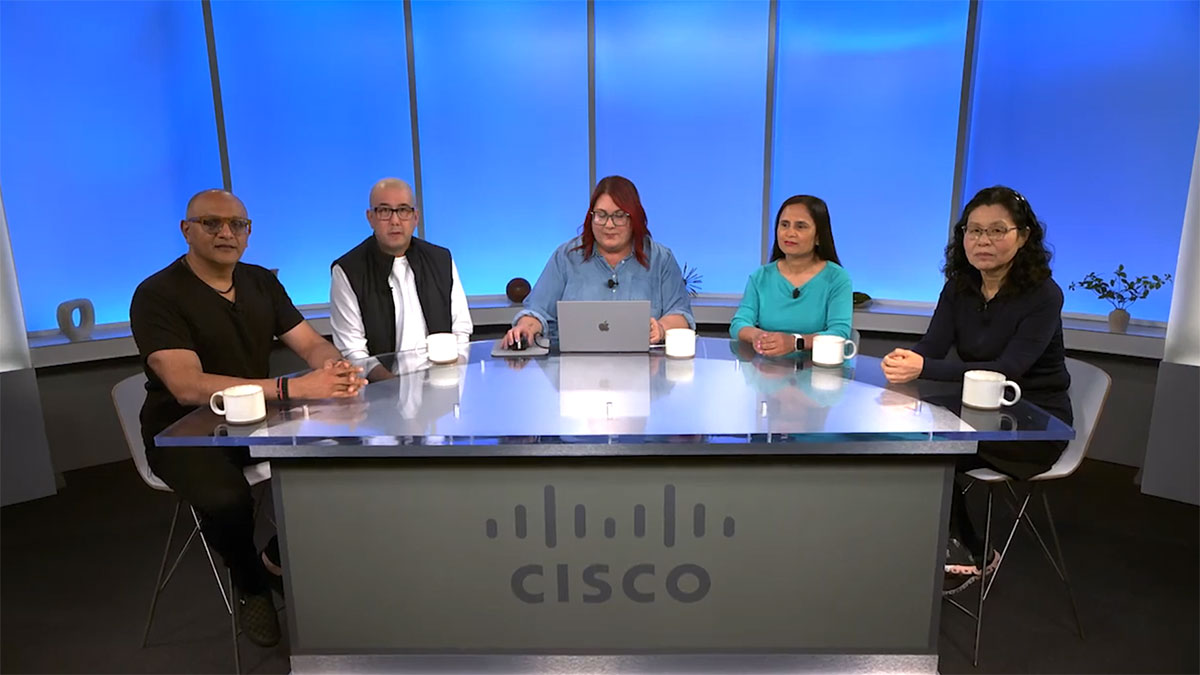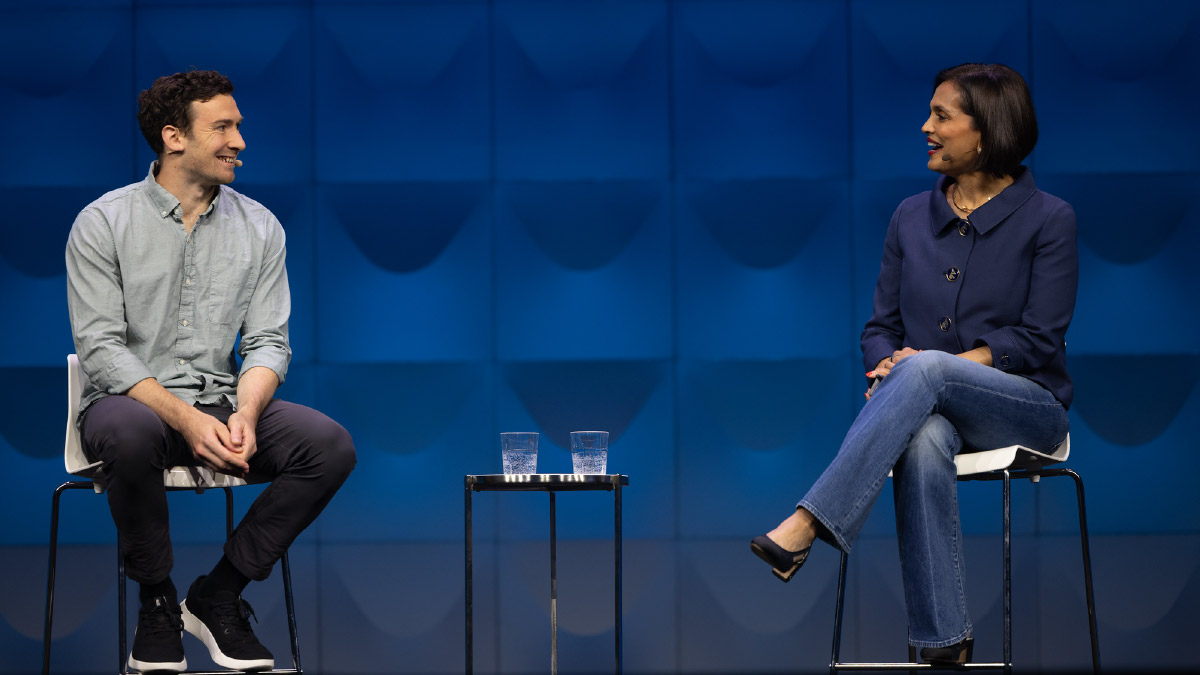“Technology done well is a creative endeavor,” Cisco SVP and CIO Fletcher Previn believes. And given his family history, it’s no surprise.
Previn’s father was the renowned composer and pianist Andre Previn, and his mom is actress and activist Mia Farrow. But while Previn first pursued a dream of working in TV, the lure of technology got the better of him. Stints at Silicon Valley startups led to an eventual position as CIO of IBM. And since 2021, he’s called Cisco home, first as chief digital officer, and lately as CIO.
In a wide-ranging interview, Previn shared his thoughts on Cisco’s culture, purpose, and cutting-edge innovation in security, AI, and hybrid work. Along with his commitment to Cisco’s workforce, customers, and, ultimately, the planet.
Thank you, Fletcher! You have a highly creative background. How has that artistic streak supported you in technology and as a leader?
Well, arts and entertainment is sort of the family business, and there was a period of time where I thought I would go into that as a career. I worked on a couple of movies, and I interned at the Conan O’Brien and David Letterman shows. But in parallel, there was always a strong interest in technology. At some point, I realized I should stop resisting and just embrace it. What I love about working in technology is it’s never boring. It’s always new.
So, you followed your bliss, so to speak?
Yes, technology was my hobby, and then it became my profession. And I hope the creative part comes through in really caring about the impact technology's having on people — and the role that technology plays in how work gets done and what is it like to be part of this organization. Technology done well is a creative endeavor.
At Cisco, culture is considered a competitive advantage. Did Cisco’s culture influence your decision to join the company?
I believe culture absolutely is a competitive advantage. And it was a big part of why I came to Cisco. I believe in our purpose — powering an inclusive future for all — and in our products and technology. I believe the world is a better place because of Cisco. And I’m excited to be part of it.
IT plays a big role in defining that culture.
Yes, if you think of culture as a function of how work gets done, IT plays an outsized role in that. And so, I take very seriously our role as being good stewards of the culture and defining what the future of hybrid work looks like — for us, for our customers, and for the planet.
Cisco is a leader in the hybrid work revolution. But it remains a challenge for many organizations. What are some unique strengths that you — and Cisco — bring to this transition?
Our team enables everyone else at Cisco to do the best work of their lives, so that they can build the products and services that enable our customers to be successful. And to do that requires a lot of empathy. And it requires us to lead with experience in everything that we do.
If you think about the end-to-end challenges that need to be solved to create a best-in-class hybrid work experience, it’s much broader than people having a good meeting. You’ve got networks that you don't own or manage, and you need observability across those networks, to know whatever’s going on.
Of course, security is a concern.
Yes, hybrid work has a lot of implications for securing infrastructure, applications, and distributed end points. When adding up the totality of solving this puzzle, you’ve got network observability, remote access, cybersecurity, collaboration, monitoring hardware endpoints, wireless, firewall. But what excites me is that Cisco’s really the only company that has the breadth and depth in its portfolio to put these things together. And create a highly integrated experience that puts an umbrella of enterprise-grade protection over people, wherever they are.
You mentioned integrated solutions. Along with security, mounting complexity is a major concern for IT teams.
You know, complex is easy; simple is hard. But it is the strategy of the company — as we consolidate various platforms and tools into more unified experiences, unified management, and unified products — to manifest simpler experiences for our teams and for our customers. Part of my time is spent looking at our total enterprise architecture, going category by category and asking, how do we simplify this picture? To lessen this complexity that has happened organically over the decades and create something more streamlined?
Unlike a lot of CIOs, you have direct input into creating many of these solutions.
I look a lot like many of Cisco's customers. But my team gets the benefit of being Customer Zero. We work in close partnership with our product engineering teams. And if it works for us, it will likely work for a lot of customers as well.
I act as the product owner on our IT backlog and prioritize our funnel of work. It’s tremendously rewarding to do this job at a company like Cisco, where we can innovate and help make things better for our people. For example, one of the first initiatives I started when I joined Cisco was creating a best-in-class Hybrid Worker bundle — essentially a secure branch office in a box. This is a highly designed, integrated experience that brings together a lot of different Cisco technology, software, hardware, and services to bridge the gap between in-person and remote in a way that only Cisco can.
So, you get to innovate yourself, while also running, in effect, a living lab from which Cisco product teams get instant feedback?
Yes, I get a lot of help. It's a company full of amazing technical people that have a lot of suggestions. But we also get to give a lot of help to the teams building the products and the services that we use. So, yeah, we drink our own champagne.
Attracting and retaining talent is another challenge. What’s your strategy?
I will always hire on curiosity and attitude over experience. I’m looking for people who are passionate about their craft and believe in our purpose. I think Cisco has a great advantage of having a clear purpose. If you think about what the world would be like if you were to remove all Cisco technology, it would be a very different place and not in a good way. Almost every packet on the Internet is moving through Cisco equipment. So, if you come to work at Cisco you get to be in the driver’s seat of defining what the future will look like. And that’s exciting. Ultimately, I want to work with patriots not mercenaries. And our purpose tends to attract people who are highly motivated.
Sustainability has become a top concern for many organizations in recent years. How can CIOs help?
It takes a lot of energy to power a data center. And by moving to something like Cisco Silicon One, organizations can significantly reduce their energy requirements. We’re very focused on doing things in a more energy efficient way, along with how we design, package, ship, and recycle products.
What excites you most about the future?
Again, it would be a completely different planet if Cisco didn't exist. But we have a lot more work to do. There are still billions of people who are not connected. We need to fix that and do it securely and sustainably.
We’re at the beginning of something very exciting with AI. It’s going to be incredibly helpful and make us more productive with our time. But doing that in a safe, secure, ethical, and responsible way is a huge focus for us at Cisco.
But whatever the technology, I view our role as helping define the future of work and what kind of world we want to live in. And getting back to your first question, I try to bring that creativity to the job and lead with empathy and experience. Everything else has a way of falling into place when you make sure that you're leading with design and experience, with a goal of making things simpler for people.





